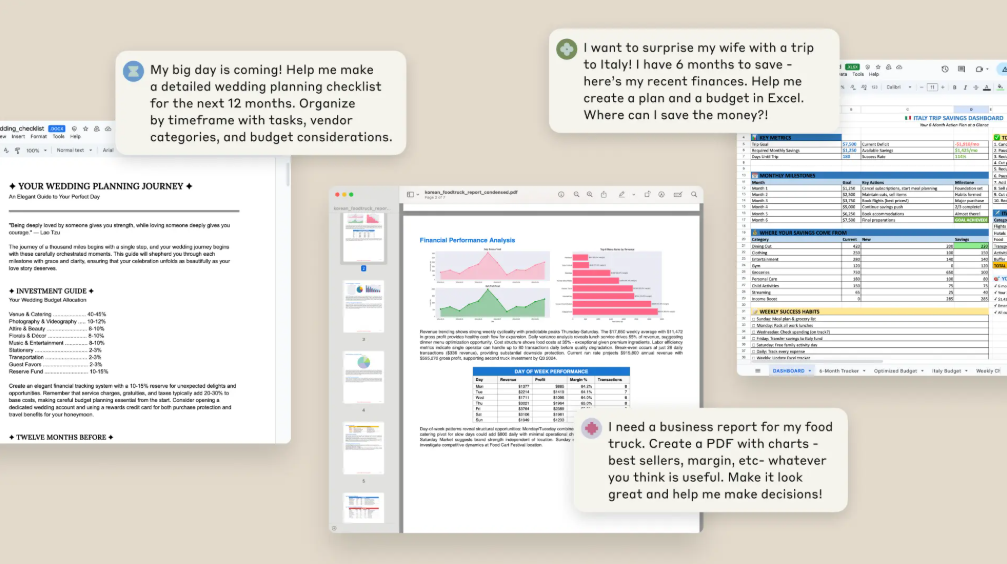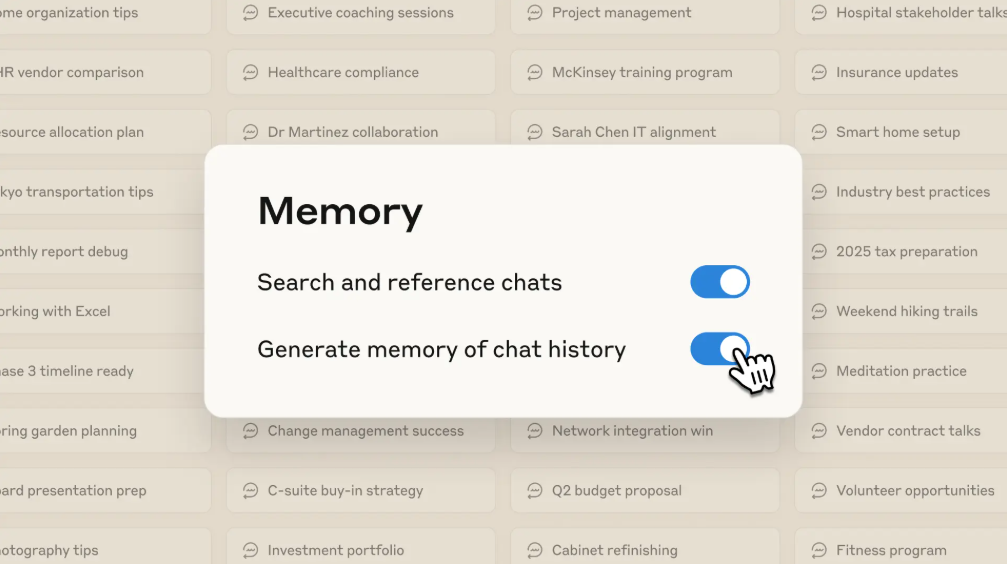The premium versions of Anthropic PBC’s Claude AI chatbot are getting a useful upgrade with the addition of “memory”, which will enable it to remember earlier interactions with users without any prompting.
The new feature, which aims to improve Claude AI’s contextual understanding, is being launched for Team and Enterprise subscribers only, and will enable the chatbot to automatically remember each user’s preferences, the projects they’re working on, and other relevant aspects of their work.
One month ago, Anthropic gave Claude the ability to remember past chats when prompted to do so, but now users won’t need to ask. Claude’s memory is also being extended to the projects feature that lets Teams and Enterprise users generate graphics, diagrams, websites and more based on files they upload to it.
Anthropic said in a blog post that the memory feature is focused on remembering work-related details such as team processes and client needs, with the goal being to reduce the number of repetitive, context-setting interactions and streamline collaboration and productivity across chats. Users will be able to view and edit Claude’s memory from the settings menu, and based on what they tell it to focus on or ignore, it will “adjust the memories it references”, the company said.
To make memory even more useful, Anthropic said users will be able to download Claude’s memories for a specific project and move them to third-party chatbots such as Google LLC’s Gemini Pro or OpenAI’s ChatGPT. It’s an interesting addition that speaks to the demand for more interoperability between AI systems, but Anthropic notes that its memories prioritize work-related context, and will not export unrelated details to those chatbots, enhancing privacy somewhat.
Anthropic isn’t the first to do this. Both Google and OpenAI have added cross-chat memories to their respective chatbots, but these kinds of features are still experimental and may not always be reliable. Last month, the New York Times said in a report that ChatGPT’s cross-chat memories were linked to an increase in the number of “delusional” responses from chatbots, so users can only be urged to proceed with caution.
Anthropic asserted that Claude’s memory abilities are entirely optional and are switched off by default. To enable it, users must go to Claude’s settings and select the option to generate memory from previous interactions. Once done, Claude will then be able to respond immediately to queries such as, “what were we working on last week?”, by going over its past memories.
To reassure more cautious customers, Anthropic has also given enterprise administrators the option to disable memory at the organizational level.
Incognito chats and agentic additions
Together with memory, Claude AI is also getting an incognito chat experience, and it’s being made available to all users, including those on its free tier. When chatting incognito, Claude will not remember a thing, and the chats will not appear in the conversation history once the user’s session is closed. Anthropic said the mode is aimed at users who need confidentiality, or want to engage in a fresh, context-free conversation with Claude.
The memory and incognito updates came just two days after Anthropic announced a new “agentic” feature that allows Claude to create Word, PDF, PowerPoint and Excel documents directly within its chat interface. This capability launched on Tuesday as a preview for Claude Max, Team and Enterprise subscribers, and will also comment to Claude Pro users in a few week’s time.

With this update, Claude effectively becomes an AI agent, using its reasoning capabilities to break down multistep tasks and complete them in a logical way using third-party software and applications. Anthropic said it’s giving Claude access to a “private computer environment”, where it can write code and run applications to create files and perform analyses when users request it to do so. It’s not the first agentic feature of Claude. Last month, the company rolled out an experimental plugin that allows the chatbot to utilize the Chrome web browser.
Anthropic’s rivals are also experimenting with agentic features. For instance, ChatGPT has introduced agents that can browse the internet and compile reports by accessing a user’s calendar and personal files, while Google has added advanced research capabilities to Gemini, enabling it to compile detailed research reports.
This feature is also optional. To create PDFs and other documents with Claude, users will need to go to the settings, navigate to the “experimental” features option and switch on “Upgraded file creation and analysis”.
Images: Anthropic
Support our mission to keep content open and free by engaging with theCUBE community. Join theCUBE’s Alumni Trust Network, where technology leaders connect, share intelligence and create opportunities.
15M+ viewers of theCUBE videos, powering conversations across AI, cloud, cybersecurity and more
11.4k+ theCUBE alumni — Connect with more than 11,400 tech and business leaders shaping the future through a unique trusted-based network.
About SiliconANGLE Media
SiliconANGLE Media is a recognized leader in digital media innovation, uniting breakthrough technology, strategic insights and real-time audience engagement. As the parent company of SiliconANGLE, theCUBE Network, theCUBE Research, CUBE365, theCUBE AI and theCUBE SuperStudios — with flagship locations in Silicon Valley and the New York Stock Exchange — SiliconANGLE Media operates at the intersection of media, technology and AI.
Founded by tech visionaries John Furrier and Dave Vellante, SiliconANGLE Media has built a dynamic ecosystem of industry-leading digital media brands that reach 15+ million elite tech professionals. Our new proprietary theCUBE AI Video Cloud is breaking ground in audience interaction, leveraging theCUBEai.com neural network to help technology companies make data-driven decisions and stay at the forefront of industry conversations.

